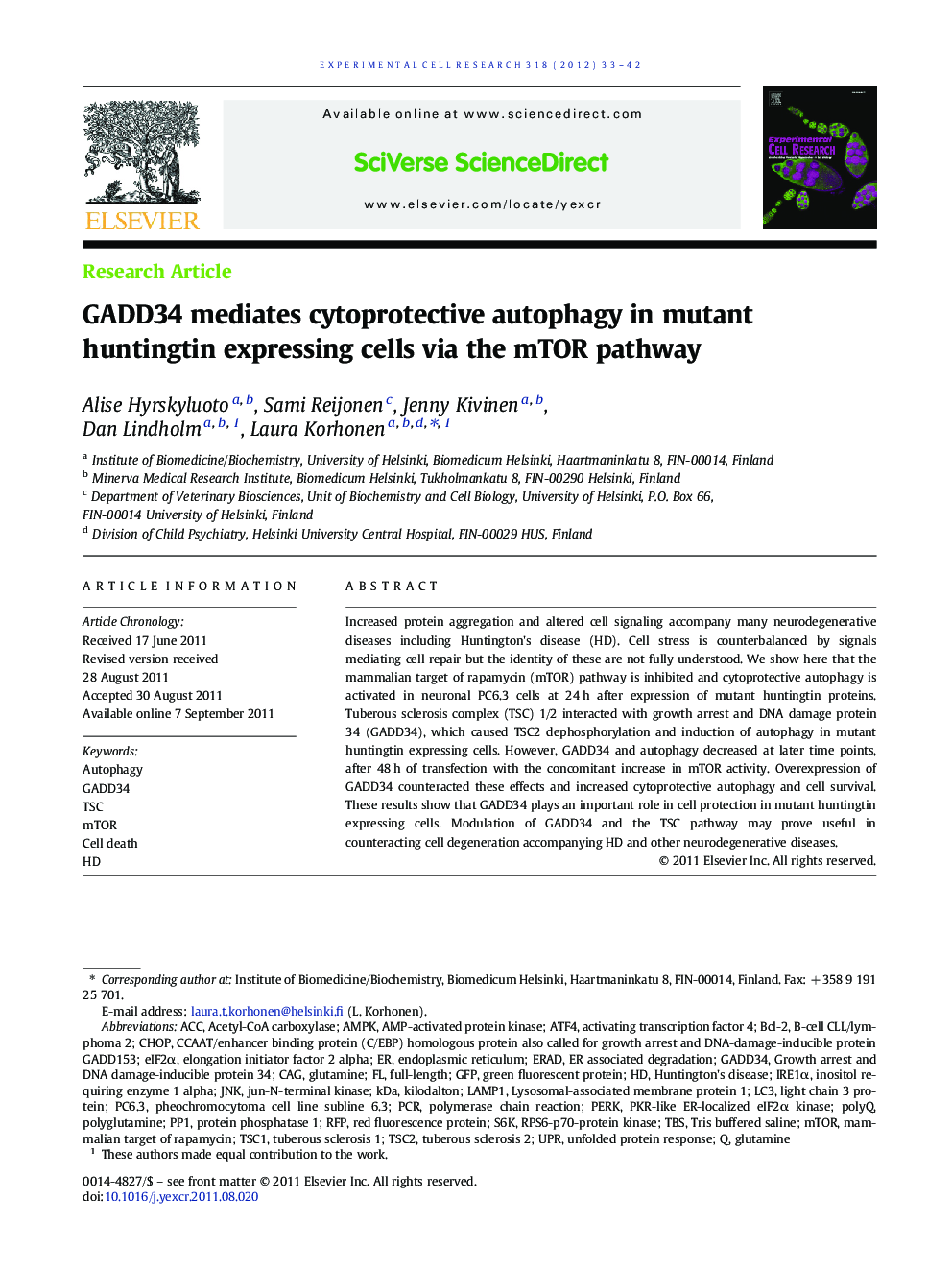| Article ID | Journal | Published Year | Pages | File Type |
|---|---|---|---|---|
| 2131138 | Experimental Cell Research | 2012 | 10 Pages |
Increased protein aggregation and altered cell signaling accompany many neurodegenerative diseases including Huntington's disease (HD). Cell stress is counterbalanced by signals mediating cell repair but the identity of these are not fully understood. We show here that the mammalian target of rapamycin (mTOR) pathway is inhibited and cytoprotective autophagy is activated in neuronal PC6.3 cells at 24 h after expression of mutant huntingtin proteins. Tuberous sclerosis complex (TSC) 1/2 interacted with growth arrest and DNA damage protein 34 (GADD34), which caused TSC2 dephosphorylation and induction of autophagy in mutant huntingtin expressing cells. However, GADD34 and autophagy decreased at later time points, after 48 h of transfection with the concomitant increase in mTOR activity. Overexpression of GADD34 counteracted these effects and increased cytoprotective autophagy and cell survival. These results show that GADD34 plays an important role in cell protection in mutant huntingtin expressing cells. Modulation of GADD34 and the TSC pathway may prove useful in counteracting cell degeneration accompanying HD and other neurodegenerative diseases.
